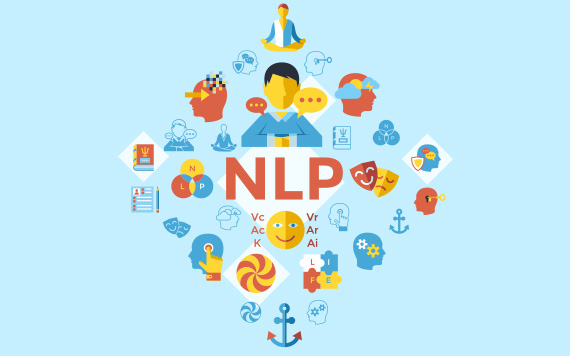- +447711 462923
- nicolajanedexter@gmail.com
- Derby, Nottingham and Camden, London
NLP- Neuro Linguistic Programming
Home » NLP- Neuro Linguistic Programming
NLP Explained
NLP can be applied to business, health and well-being, counselling and therapy, relationships, sport, training and education, negotiation, leadership, presentation skills, goal setting etc. It is about how to train your brain to achieve the results you desire as well as being a means by which people can achieve goals and better communicate.
Understanding NLP
NLP (Neuro Linguistic Programming) explains how we process information coming to us from the world around us. Cognition of an external event occurs as we experience it through the senses:
- visual
- auditory
- kinesthetic (feeling)
- olfactory (smell)
- gustatory (taste)

Before we make an internal representation of the event we do the following: –
- Delete – when we selectively pay attention to some aspects of our experience and not others;
- Distort – when we make shifts in our experience of sensory data by making either misrepresentations of reality or making it mean something about ourselves or the world E.g. Being ignored means our parents didn’t love us or we are unlovable.
- Generalise – when we draw global conclusions based on one or more experiences. E.g. Our first partner leaves us and we expect every partner to do the same thing.
- It is the therapist’s responsibility to draw attention to when the client is either deleting, distorting or generalizing about their experiences so that they have access to creating the way they would like to interpret events that happen in their lives.
- The tools of NLP also allow for understanding what strategies people have for creating their own problems. For example some people visualize all the possible things that can go wrong. Others tell themselves that they are stupid and will never get things right. When these strategies are brought to conscious awareness in therapy then the client has got themselves above the vicious circle of the symptoms of the problem reinforcing having the problem and it is from this viewpoint that changes can be made.
- Another tool of NLP, which can help clients, is to understand anchoring of feelings. What often happens in life is that certain words, certain people, certain looks on a person’s face can trigger us to feel bad. In the therapy these anchored negative feelings are either deleted or overwritten.
- One technique I use very regularly is that of Parts Integration. So very often clients experience indecision caused by their mind being split into parts.
When the client uses any of these phrases, it confirms that this is the case:-
- Well a part of me thinks/feels this
- On the one hand I think this, on the other hand I think that
- I am in two minds about whether I should do this.
- Parts integration allows the mind to get back into a situation of working as one whole and therefore makes decision making much easier and following through on those decisions.
- Overall NLP is a very powerful way of changing the way we think so that we can have the results we want in our lives.
- NLP can be applied to business, health and well-being, counselling and therapy, relationships, sport, training and education, negotiation, leadership, presentation skills, goal setting etc. It is about how to run your brain to achieve the results you desire â?? a means by which people can achieve goals and better communicate.
"I hated having visitors in my house because I didn’t want people too close to me or because I felt that I am not clean. In fact if I knew that someone was coming round, I would always bleach all the floors beforehand, which was a bit over the top. But the other day a friend texted to say she’s like to come round that afternoon and my house was messy, as usual, not least because I’d dedicated that afternoon to doing the week’s housework. And yet somehow I was able to override the urge to deflect her and I had this friend round my house without having to do any bleaching or too much tidying beforehand and I felt completely okay about it. I really felt that I’d achieved something. I think it can generally be summarised as being now more flexible, less neurotic. Also, I have had a lot of episodes of feeling very positive since our last session. And not avoiding things, like paying my credit card on time (rather than not opening the statements) and answering my supervisor’s emails on the day he writes them, rather than just hiding."
Get the Solutions
To book your free 30 minute initial consultation please
© 2024 NICOLADEXTER. All Rights Reserved. Crafted by SAIntellectsolutions
